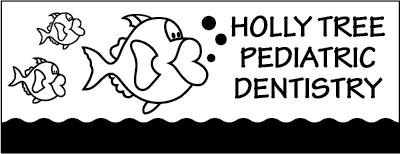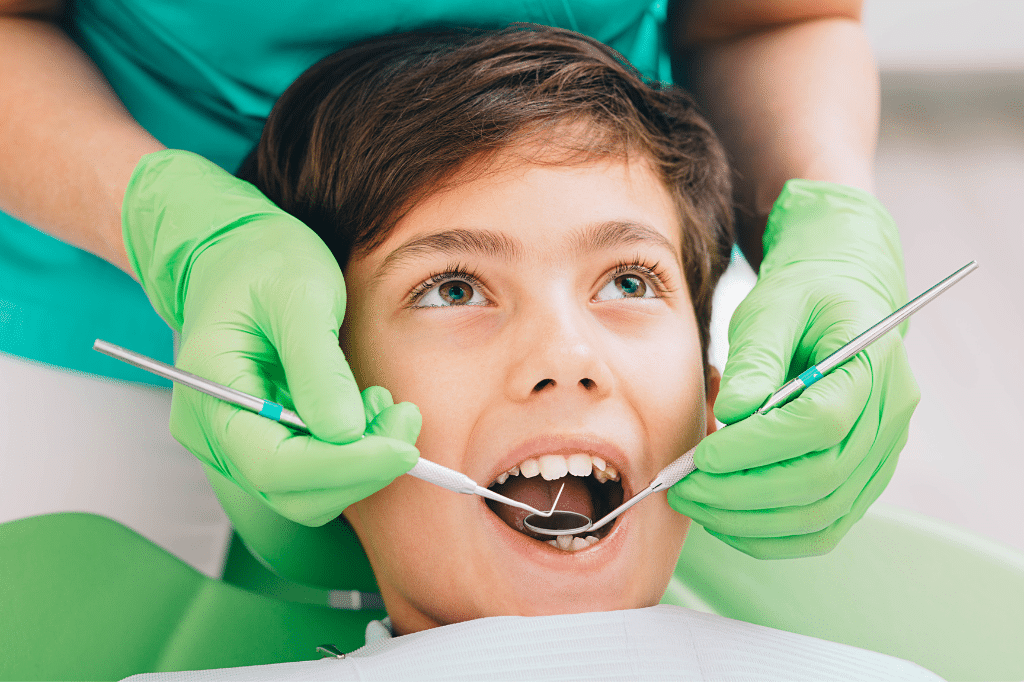As a pediatric dentist, I see a lot of young patients come through our doors with some mighty bad habits. Some bad habits can inadvertently harm their dental health. Here are the worst dental habits I typically see in kids and practical tips on how to stop or correct them, ensuring a healthy and strong smile.
Habit #1: Thumb Sucking
Thumb sucking is a common soothing mechanism for many children and can, if continued too far into adolescence, cause dental misalignments. Most children will naturally stop thumb-sucking as they age out of toddlerhood, so in most instances, parents do not need to worry. But if the habit becomes one that seems to be growing with them, we recommend starting with positive reinforcements such as rewards to encourage them to break the habit. Again, in most instances, nothing more is needed. If a parent is worried about their child’s thumb-sucking habit, make sure to bring it up during their next visit.
Habit #2: Nail Biting
This habit just makes me cringe and for several reasons! Nail biting not only affects nails, but it can also damage teeth and lead to jaw problems. Not to mention, with every bite, your child is ingesting germs and nasty bacteria hiding under their dirt-covered nails! Are you cringing yet?
If your child is a nail-biter, it’s important to identify why. Typically nail biting is a symptom of a child suffering from anxiety – whether that be at home or in school. Talk to your child to see if something is bothering them and help to alleviate their point of stress. For a quick fix, you can help curve their desire to put their fingers into their mouths by using bitter-tasting nail polish or perhaps providing them with stress-relieving alternatives like a simple stress ball or silly putty. Regardless of the quick solution you use, it’s important to build positive reinforcement to fully break the habit. This is an important one parents – learning how to identify outward signs of stress is key to helping your child manage their anxieties as they grow.
Habit #3: Chewing on Objects & Using Teeth as a Tool
Kids often think their teeth are indestructible like metal can openers ready to use when needed. They will chew on pencils, pens, bottle caps, or other non-food items and may also try opening packages or bottles with teeth. All of these actions can lead to chipped teeth and jaw issues. Encourage your child to be aware of the habit and redirect their focus when caught in the act. Provide them with safe alternatives like sugar-free gum or chew toys to satisfy the oral fixation.
Habit #4: Excessive Sugar Consumption
While this is not an age-specific habit, over-consuming sugar for teeth, growing or adult, is never good. Too much sugar can lead to quicker tooth decay. For children addicted to sugary foods or drinks, it’s important to build healthier eating habits while working to curb the addiction. Educate your child on the damage sugar can do to their bodies and specifically, their teeth. At home (and at school when possible), limit sugary treats and replace them with healthier alternatives like fruits and vegetables. Encourage proper brushing and flossing after consuming sugary foods to minimize the risk of cavities.
Habit #5: Ignoring Oral Hygiene
My last nasty habit is neglecting regular brushing and flossing. As a dentist, there is nothing I hate more than to see excessive plaque buildup and cavities in children. Establish a consistent oral hygiene routine, making it a fun and interactive experience. Use colorful toothbrushes and flavored toothpaste to make brushing more appealing. Supervise younger children to ensure they are brushing effectively, and emphasize the importance of maintaining a clean and healthy mouth. Dental care is usually maintained into adulthood when it’s made into a fun routine as a child.
It is common in childhood to develop a variety of unseemly habits but many will naturally fade as they age. Bad dental habits should be watched carefully so they do not become long-lasting. For any of the mentioned habits above, it’s important to address and correct them before dental harm can be caused. By implementing these solutions and fostering a positive attitude towards oral health, parents can help their children develop lifelong habits that contribute to a beautiful and healthy smile. Happy Habit Breaking!



